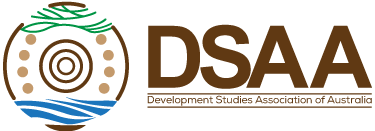Bill Walker
One hundred years ago this week, Paulo Freire was born into a middle-class family in north-east Brazil. At the age of eight, global economic depression struck his family, forcing them to move into a marginalised rural community. Then at thirteen, his father died, plunging his family even deeper into poverty. Later, he suffered exile – not once, but twice. Freire’s own lived experience of multi-faceted impoverishment and marginalisation deeply influenced the remaining decades of his thinking, praxis, and faith.
This piece offers a very brief overview of Paulo Freire’s legacy. Future pieces contain reflections on how and why his thinking and praxis have been abused, critiqued – and embraced.
The global breadth and uptake of Paulo Freire’s thinking and the longevity and fertility of his influence are nothing less than staggering. The early embrace of his 1940s social experimentation and participatory action research (in groups that he called culture circles[1]) in impoverished communities across north-east Brazil mushroomed into thousands of groups across the country. Here, Freire formed and proved his influential development praxis, which has since spread across the globe.
In development studies, where an ongoing challenge is to integrate siloed knowledge from multiple disciplines, Freire is widely considered as a seminal thinker in critical pedagogies,[2] and he has been highly influential on interdisciplinary, transdisciplinary, and post-disciplinary fields of thinking. Also seminal for development studies are his contributions to fields such as community development, formal and informal education, systems research and behavioural science, applied psychology, liberation theology, democratic theory, ecological systems, health promotion and movement building.[3]
Freirean praxis continues to be appropriated, adapted for different contexts, and applied across the global South. His famous emancipatory pedagogical processes developed in Brazil in the 1940s were incorporated over the following decades into other important, recoverable praxes, such as Southern participatory action research, REFLECT and see-judge-act approaches.
Freire showed that pedagogical processes are crucial for transformative social action. Impoverished and illiterate groups and communities using these processes can do their own decolonising participatory research and experientially discover shared, actionable knowledge. As he learnt from his own widening experience across the global South and the North, he developed and enhanced his own thinking. This he systematised in the best-known of his books, ‘Pedagogy of the Oppressed’, which was first written in Portuguese in 1968 while Freire was in exile in Chile. Banned in Brazil until 1974, it was published in English translation, in 1970.
In this book, Freire systematically analyses logics of domination and oppression, and of how oppressed groups and communities counter them. By learning how to ‘name’, ‘read’ and ‘write’ their world and thus produce actionable knowledge in culture circles, oppressed and dominated groups win freedoms they value. Key to such liberating freedoms and knowledge are conscientisation processes, through which they increase their critical consciousness (‘conscientização’). This critical consciousness grows as they free each other from their ‘submersion’ in an imprisoning ‘culture of silence’. One important result, which Freire calls ‘dialogical action’, is that through dialoguing, their shared voice is amplified and influences collective, freedom-seeking action.
Beyond ”Pedagogy of the Oppressed”, the living corpus of Freire’s writings and praxis is extensive and varied, reflecting the growth in his own thinking. Emerging from Freire’s early praxis (begun seven decades ago) are continuing experiments in which, through collective learning, communities continue to develop his praxis by adapting it for different geographical and cultural contexts across the Global South.
In a world where deep-rooted collective action dilemmas such as climate change, pandemics and terrorism have been dominating our shared experience, headlines and awareness, the durability of Freire’s emancipatory praxis highlights his continuing 21st century relevance. As we mark this 100th anniversary of his birth, Paulo Freire’s rich, diverse, and lasting legacy to humanity remains secure.
Bill Walker is an Honorary Fellow at Deakin University and occasional tutor in transformational aid and development at Ridley College. While at World Vision Australia from 1987 until 2019, he was active in the Jubilee 2000 campaign to free nations from unpayable debts and in research on participatory governance. In 2004 he advocated for and initiated experimentation with Freirean participatory action research praxis. Years of collaborative experimentation with impoverished communities who embraced this praxis produced Citizen Voice and Action (CV&A) in 2009. CV&A has since spread to thousands of communities in at least fifty countries across the Global South. Bill completed his PhD by publication on CV&A praxis in 2018.
[1] More specifically, they were designed to foster problem-posing, dialoguing, and problem-solving processes among rural populations deprived of opportunities to become literate.
[2] Giroux, Henry A. “Rethinking Education as the Practice of Freedom: Paulo Freire and the Promise of Critical Pedagogy.” Policy Futures in Education 8, no. 6 (2010): 715-721.
[3] For more complete lists see Schugurensky, Daniel, Paulo Freire. Continuum library of educational thought 16. London; New York: Continuum International Pub. Group, 2011; Roberts, Peter, Paulo Freire in the 21st century: education, dialogue, and transformation. Interventions. Boulder: Paradigm Publishers, 2015.
